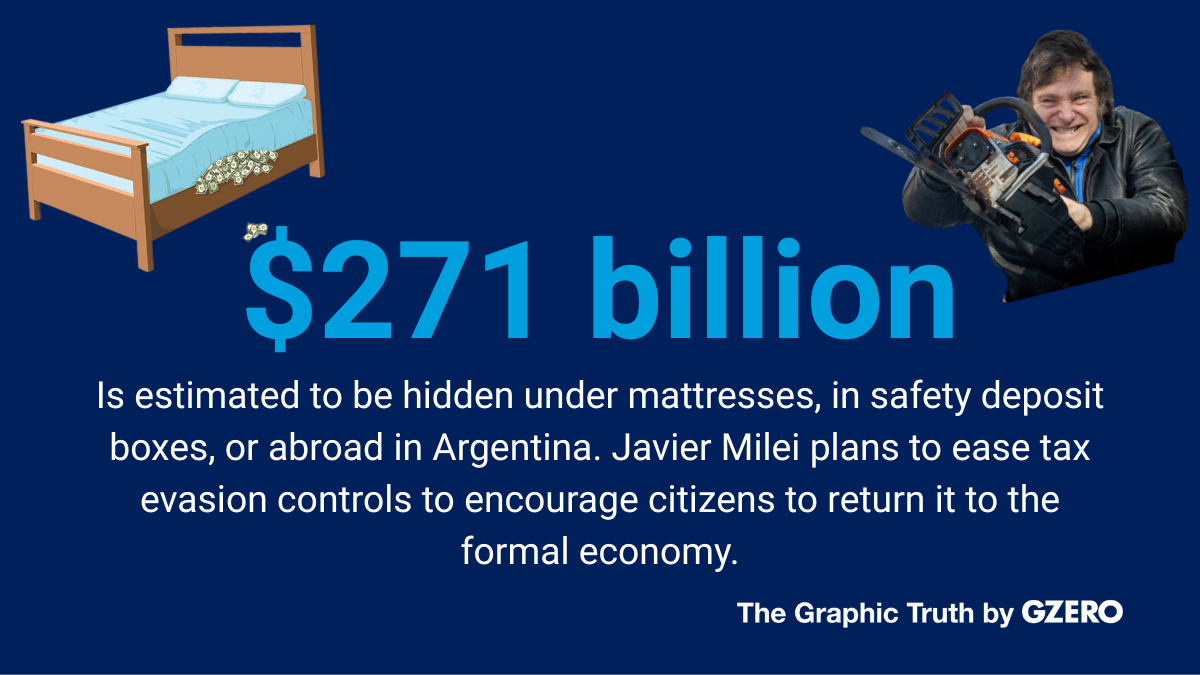May 19, 2025
Argentina’s President Javier Milei is preparing to loosen the country’s complex tax evasion restrictions in an effort to draw billions of undeclared dollars back into the formal economy. With an estimated $271 billion stashed in homes, safety deposit boxes, and offshore accounts, savers have long sought refuge from a volatile peso, capital controls, and shifting tax laws.
While critics warn the plan could enable tax dodgers and money launderers, Milei argues it offers a path to reintegrate legally earned funds. In a largely informal economy, where cash deals dominate, experts say meaningful incentives, not penalties, are key to drawing money out from under the mattress and back into the system.
More For You
Walmart is investing $350 billion in US manufacturing. Over two-thirds of the products Walmart buys are made, grown, or assembled in America, like healthy dried fruit from The Ugly Co. The sustainable fruit is sourced directly from fourth-generation farmers in Farmersville, California, and delivered to your neighborhood Walmart shelves. Discover how Walmart's investment is supporting communities and fueling jobs across the nation.
Most Popular
- YouTube
President Trump’s second term has rapidly reshaped global politics, with the US wielding power more aggressively, targeting weaker countries and even allies, Stephen Walt explains on GZERO World.
- YouTube
Ian Bremmer breaks down a sudden and serious transatlantic crisis: President Trump’s insistence that the United States must have sovereignty over Greenland.
- YouTube
It’s been a year since President Trump returned to office. How has the world changed? Stephen Walt joins Ian Bremmer on GZERO World.
© 2025 GZERO Media. All Rights Reserved | A Eurasia Group media company.
